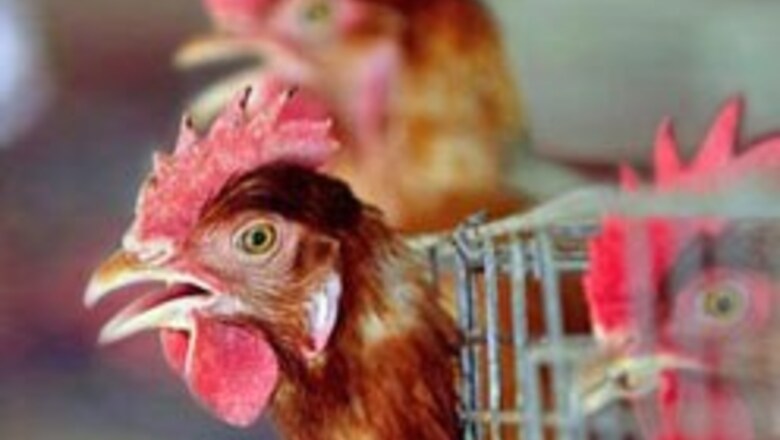
views
Beijing: A woman in eastern China has died from the H5N1 strain of bird flu, the Health Ministry said, the second death from the virus this year as the country's biggest festive season approaches and contact with poultry increases.
The woman, whose surname was Zhang, lived in Jinan, the capital of Shandong province. She died Saturday, the ministry said on its Web site late on Sunday. The notice did not say how Zhang, 27, who fell sick on Jan. 5, contracted the virus.
A man who answered the telephone at the Shandong health department refused to comment.
The fatality comes less than two weeks after a 19-year-old woman died from the H5N1 virus in a Beijing hospital after buying and cleaning ducks in a market in a neighboring province. It was the first death from bird flu since last February.
Also Monday, a 2-year-old girl was in critical condition in the northern province of Shanxi with bird flu. Ta Kung Pao, a Hong Kong newspaper backed by the mainland's communist authorities, reported that the girl's mother died recently of what doctors "highly suspected" was also bird flu.
The paper did not give any other details, and Shanxi health officials refused to comment on the mother's death.
The girl tested positive for H5N1 after falling ill on Jan. 7, the Health Ministry said.
The cases come at a worrisome time for Chinese authorities as tens of millions of people are on the move between cities and rural hometowns for Lunar New Year, the country's biggest holiday, which begins on Jan. 26.
Dishes prepared from freshly slaughtered chicken and duck feature prominently in celebration feasts, posing a potentially greater risk of exposure to sick birds, said the World Health Organization's Beijing office.
The WHO said it was prepared to provide assistance to China if asked and urged people to take precautions against bird flu infections by washing their hands after handling raw meat and ensuring that all poultry is well cooked.
While bird flu remains hard for humans to catch — with most cases linked to contact with infected birds — scientists have warned that if outbreaks among poultry are not controlled, the virus may mutate into a form more easily passed between people. A new influenza virus could quickly turn into a pandemic, potentially killing millions of people.
Chinese Health Ministry spokesman Mao Qun'an said last week that the public should minimize contact with poultry, especially sick or dead ones, and that medical institutions should step up surveillance of flu cases, especially during the New Year holiday.
Health officials say that the winter months can bring an increase in bird flu cases because the H5N1 virus can survive longer in cold weather and have a bigger chance of infecting poultry — and possibly humans. Winter is also when many people in rural areas bring live poultry into their homes to protect them from the cold.
The virus, which has ravaged poultry stocks across Asia since 2003, has continued a path of infection.
Last week, Nepal reported that chickens tested positive for H5N1 there — the first time known instance of the virus in the Himalayan nation.
In Vietnam, animal health officials said they detected the bird flu virus in chickens smuggled from neighboring China. An 8-year-old girl was also reported sick with H5N1 earlier this month, the first human case reported in the country in nearly a year.
According to the latest World Health Organization figures, bird flu has killed 248 people worldwide since 2003.


















Comments
0 comment